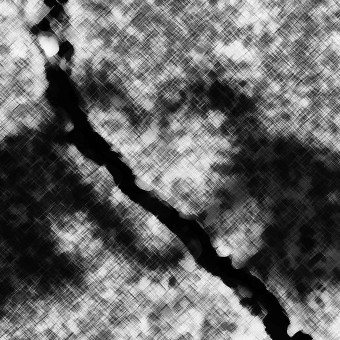It was an impulse buy. Half a brass heart, sitting forlorn on a glass shelf in the thrift shop. Like the wedding gowns (and yet strangely unlike the cast off tuxedos), it whimpered of broken hearts and promises unkept. It was $5.99, an outrageous price for a cast off bit of brass jewelry, but, she told herself, a fine price for someone else’s dream.
Anna had never had a best friend, had never really wanted one until she was too old for the concept. Childhood had been a landscape of old trees and broken fence posts with bird nests inside. Of being sure she had made friends with the faeries, and then, suddenly, being not so sure, anymore. Which required gifts and impromptu rituals to reacquire their good grace, reassurances given in the shake of the leaves, the gust of the wind, the carving of a riverbank which clearly meant something.
Anna no longer believed in such things, except late at night when she felt the quiet beyond the sound of the city pressing in on her ears like an overprotective mother. Then she would press the fabric of her comforter to her lips and somehow that was the same thing as the buzz of faerie wings she (she told herself, disbelieving) once imagined. And then sometimes, a blue flash in the corner of the room, or a thrill of tickle running against her leg, and she would drift to sleep, happy.
When she found the brass heart (or half-heart, more precisely), nothing changed, much. She slung it about her neck, thinking more or less whimsically that she was claiming a space left behind. Someone, out there, was missing a best friend. And whether or not they knew it, she was that friend. Out in the world, with the other half of their heart, keeping it safe. She went home after work and made pasta with lemon balm and lovage, and didn’t consider the matter again until she undressed for bed.
It seemed wrong to take it off to sleep. If you were someone’s best friend (whether or not they knew it), you were committed to that relationship. It didn’t end when you laid yourself down to sleep. And so she doffed her clothes but left the necklace on, feeling it pierce against her breast when she laid down on her side, but not moving to readjust it. All relationships have their element of pain, she reminded herself, and she drifted to sleep with a smile.
She woke from a dream of running. She didn’t remember what she had been running from or toward, but sleep held heavily to her eyelids and she struggled to push herself out. She caught the flash of the pendant as she dressed in front of the mirror, strangely warm and rich in the artificial glow of the bedroom lamp. She turned a little, back and forth, watching it catch the light between her breasts, smiling to think it represented her own heart.
Work happened, and coworkers chatted to her, asking this and that and offering tales about their 14 hours away from the floor they now again shared. Anna smiled and nodded and handed over requested items, and sometimes folded her arms tightly against her chest, so that she could feel the sharp edges of the broken heart cutting against her skin. The pain was beautiful. She felt deeply, intensely happy.
At four o’clock she walked out back of the building for a smoke break. She didn’t smoke, but company policy dictated that everyone, regardless of tobacco addictions, received a fifteen minute break midway through the second half of the afternoon. A greyed and splintered picnic table filled half of the alley, crowned with a pock-marked plastic ashtray. Next to the ashtray, today, rested a deeply red apple. And tied to the stem was a paper note. The note read:
It isn’t yours.
Anna held the note between her fingers for several long moments, running her thumb over the texture of the paper, noticing the colour of the ink and the slant of the writing. And then she took a defiant bite of the apple and walked back inside.
That evening, she took the short route home, stopping in only briefly at the local market to buy a packet of ramen noodles and some chiles. She stood in her kitchen over the boiling water and fingered the necklace, running her thumb over and over the jagged edges. At bedtime, she stipped naked but didn’t look at the necklace, avoiding the mirror. When she slept, she folded it flat between her breasts.
